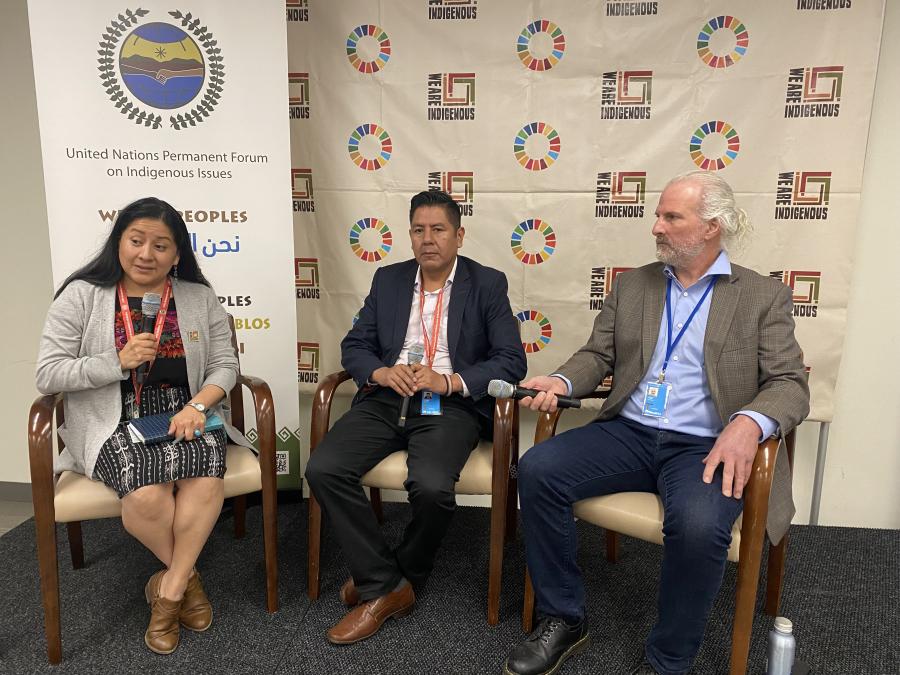



Since a report was released on April 16, 2015 by the International Center Against Impunity in Guatemala revealing a disturbing political scandal involving high ranking political figures, Guatemala has been politically unstable. From the resignation of the vice president to the continued protests demanding the resignation of President Otto Perez Molina, Guatemala approaches one of its hardest election years. Not since the 1950’s have the various ethnic and social populations of Guatemala united for a common cause. Preliminary elections are set to be held on September 6, 2015. However, the massive protests around the country propose a null vote, but a null vote has no value, and this concerns many community leaders. The community radio network in Guatemala has launched a series of programs discussing voting rights, citizen responsibility, corruption, youth participation and politics, among others, to build an informed electorate.
“Many political parties have approached me to provide funding in order to promote their political campaigns. I respond the same way I’ve responded for the last 30 years: we represent community radios and media and we do not endorse any political parties,” explained Rene Saenz, legal representative of AMECOS, the Assocation of Community Media in Guatemala. Through various trainings and workshops organized by various non-profits that defend freedom of expression, radio volunteers around the country have produced radio material to help educate the population on their right to vote. “Not voting gives our corrupt government more power. We are all disappointed in the authorities but we must vote because it’s our right. Many people, especially in the rural communities, don’t understand this concept,” said Else Chiquito, radio volunteer and producer at Radio Ixchel in Sumpango, Guatemala.
In partnership with Cultural Survival, a series of 10 radio spots have been produced by radio volunteers from five stations to be distributed to a network of over 50 community radios. The goal is to inform rural communities about the upcoming elections and their rights. “Our people are more concerned about whether or not there will be rain for the crops this year than about who to vote for. I don’t blame them, but it is our responsibility as community media to inform them in order for them to make an educated, free and informed choice on September 6,” said Santiago Ajcalon, founder of Radio Juventud in Solola. The radio spots focus on informing the listener in his or her respective Indigenous language about the electoral process. Among these topics are the importance of exercising the right to vote, not feeling pressure to vote for one specific political party because they paid them to do so, a common occurrence during elections in Guatemala. There are two specific radio spots addressing youth voters since there are various social media groups that have sprung up since the scandal that are proposing a null vote feeling disappointed in their leaders. The radio spots produced by youth, children and community leader radio volunteers address these necessary topics to encourage the population to make an educated choice in September.
Guatemala will face serious challenges as September 6 approaches and protests continue. Some protesters have even called for the elections to be suspended this year. It is uncertain what will happen, but the community radio movement is working hard to ensure that Guatemalans are able to make an educated choice about whether to vote or not vote, and if so, for whom..

